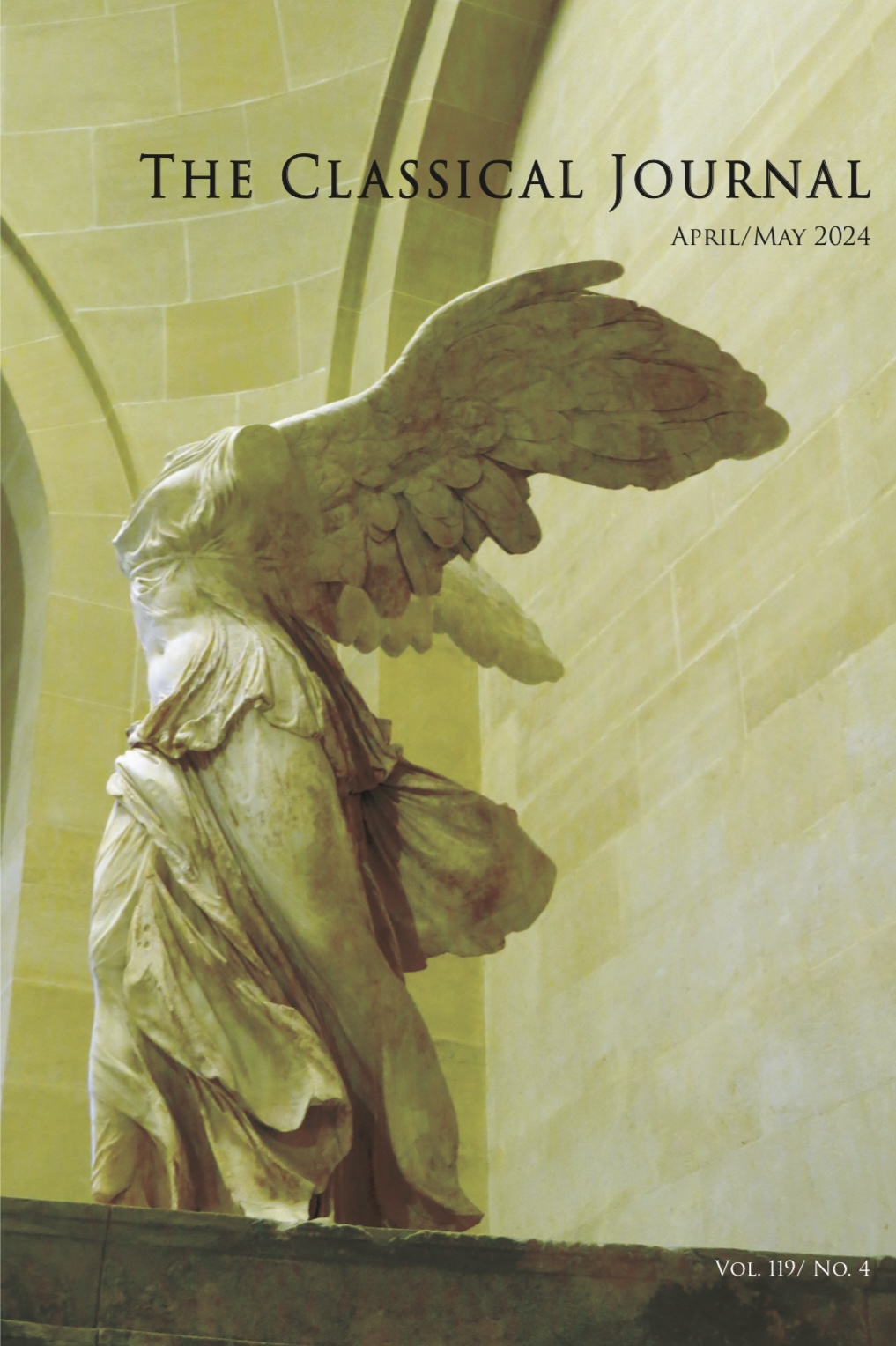The following articles are contained in CJ
112.1
Abstracts of Articles
SICYONIAN COMEDY
Sicyon is famously associated with the origins of tragedy, but its connections to other dramatic genres are murkier. This article argues that the city was also connected to the invention of comedy on the basis of an epigram from the Garland of Philip by Honestus, Anth. Pal. 11.32 (=VIII Gow-Page). Most modern scholars suppose that the epigram ascribes the invention of satyr play to Sicyon, but I suggest that its description better resembles comedy. Sicyon’s claim to comedy was probably a local tradition that was overshadowed by competing claims from other Doric states and Athens.
A CASE FOR THE READING “GAZA” IN CRINAGORAS ANTH. PAL. 9.284 LINE 3
The emendation “Gaza” in line 3 of Crinagoras Anth. Pal. 9.284 has not been widely adopted due to the city’s purported obscurity. This paper argues that not only would Gaza have been well known to the inhabitants of Mytilene (the home town of Crinagoras), it would have been associated with Pompey’s generosity to Greek cities on his return from the East. The emendation thus restores a measure of political edge to an epigram expressing outrage over Caesar’s treatment of Corinth, and illuminates the nature of its panhellenic commitment.
SWEATING WITH BLOOD AND CIVIL CONFLICT IN DE RERUM NATURA
Critics regularly note that sanguine sudare, “to sweat with blood,” appearing twice in DRN, is striking and they offer some verbal parallels in other texts. The phrase and these parallels have not been investigated beyond these passing comments. In this article I examine Lucretius’ use of the phrase within his poem and in other sources. I argue that the phrase, as Lucretius employs it, is multivalent in meaning and is a signal to his audience that evils are threatening Rome. By placing the phrase in conversation with similar and identical locutions found in war and teratological contexts, I show that Lucretius uses the phrase to induce his audience to consider the causes and consequences of violence and looming societal collapse. The phrase is more than a fine expression, it is for Lucretius another method to stimulate introspection and radical change among Rome’s elite.
SERTORIUS BETWEEN MYTH AND HISTORY: THE ISLES OF THE BLESSED EPISODE IN SALLUST, PLUTARCH & HORACE
At a pivotal moment early in his revolt against Rome, Quintus Sertorius, a key figure in Sallust’s fragmentary Histories, is tempted by the opportunity to sail away to the “Isles of the Blessed.” Sallust’s few fragments on these islands, when compared to Plutarch’s more detailed description, reveal how the Roman historian, by emphasizing their place in the literary tradition rather than in the geography of the known world, constructs a commentary on two “histories”: Sertorius’ impossible position in his revolt against Rome, and the tragic political conditions of his own day. The echoes of Sertorius’ illusory escape to a utopia in Horace’s Epode 16, in stark contrast to Plutarch’s rationalizing account, help bring to light both of these histories in Sallust’s brief account of this episode.


